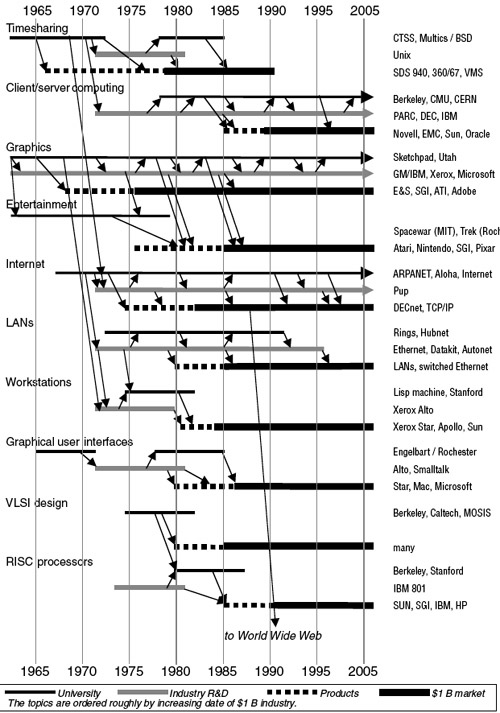Thanks to Matt K who pointed me to this essay about the history and historiorgraphy of software, The Hard Work of Software History. Henry Lowood documents the problems with studying the history of software including the problems of preserving software for study.
A new twist in the Silicon Valley Project has been the acquisition of software in various forms, accompanied by research projects that seek to tell the story of the Silicon Valley in its own medium. In the first instance, the libraries have acquired materials such as data tapes from Engelbart’s ARC projeects, hard-disk images along with collections of personal papers such as those of Jef Raskin and Mark Weiser, e-mail archives, … Each of these formats requires special strategies for evaluating, recovering, stabilizing, possibly reformatting, and indexing content. In some cases, the strategies do not yet exist … (p. 17)
The main problem is the medium of study. “Traditional models of access focused on the service desk and reading room as means of mediating complex systems of indexing and identification of materials, as well as supervised reading, fall apart in delivery contexts shaped by computer hardware and virtual libraries of born-digital materials.” (p. 18) The practices of historians are also formed by the medium of their archives. Software is used not read, and software archives are more likely to look like the historical woodworking shop at Williamsburg where tools are tried in traditional practices than library reading rooms.
This article cites two others that are important, Weiser’s The Computer for the 21st Century from Scientific American (1991) which talks about “ubiquitous computing”; and Kittler’s There Is No Software from C-Theory: Theory, Technical, Culture 32 (Oct. 1995). Lowood ends by countering Kittler to the effect that “Kittler’s admonition that ‘there is no software’ provides little relief to archivists and librarians who discover that there is more of it than they can handle.” (p. 20)
 According to Reporter’s Notebook: Highlights from the 2007 Annual Meeting of the American Historical Association a lifetime member of the AHA was knocked down and arrested for jaywalking in Atlanta. Others were stopped and warned.
According to Reporter’s Notebook: Highlights from the 2007 Annual Meeting of the American Historical Association a lifetime member of the AHA was knocked down and arrested for jaywalking in Atlanta. Others were stopped and warned.

